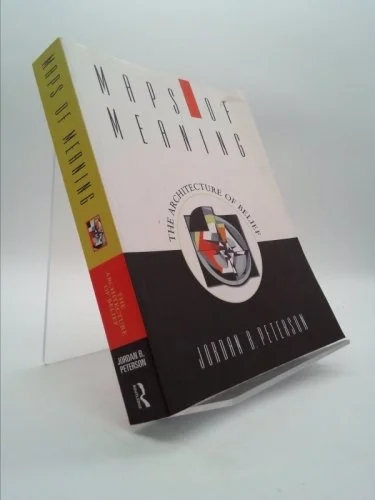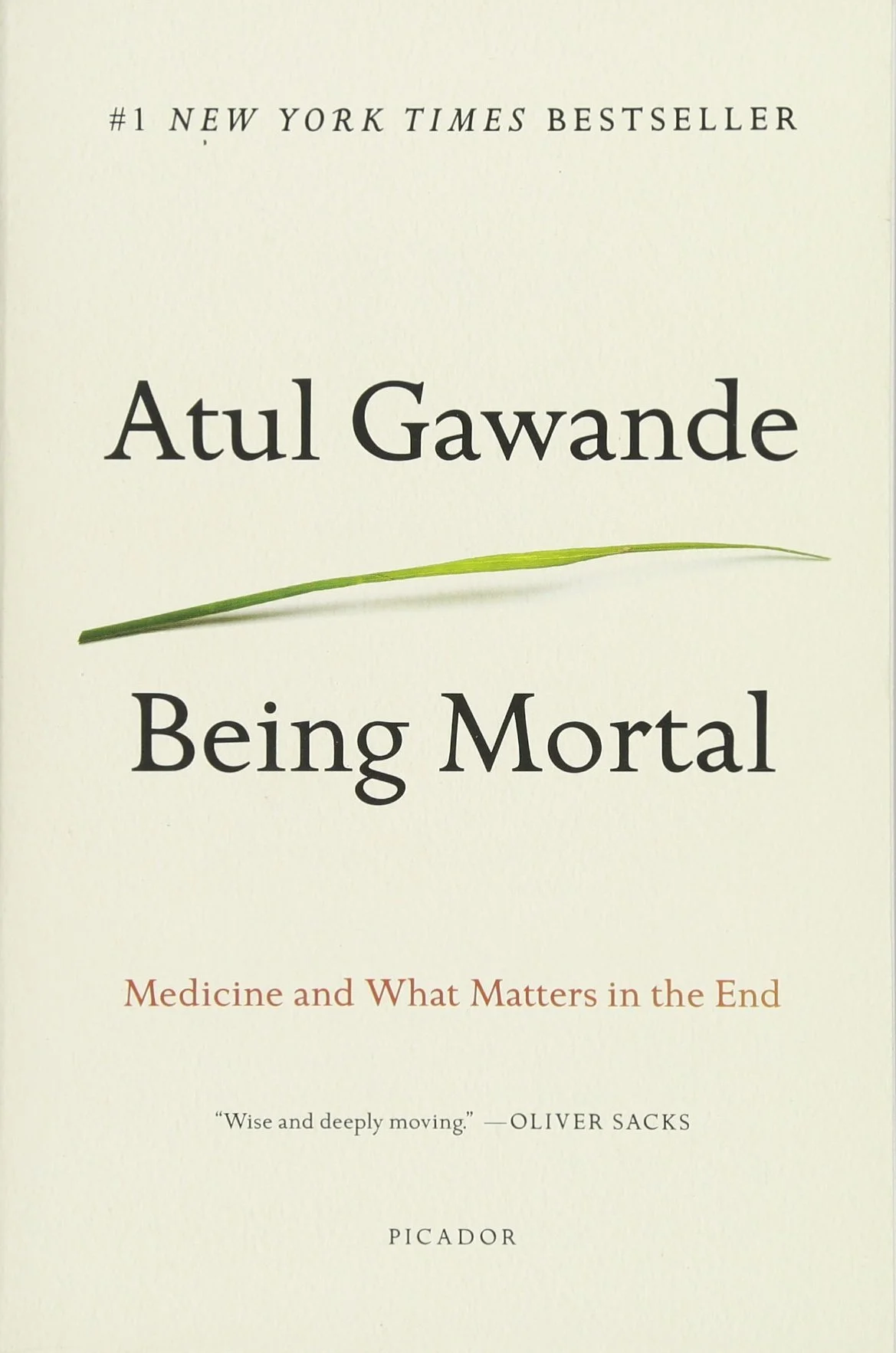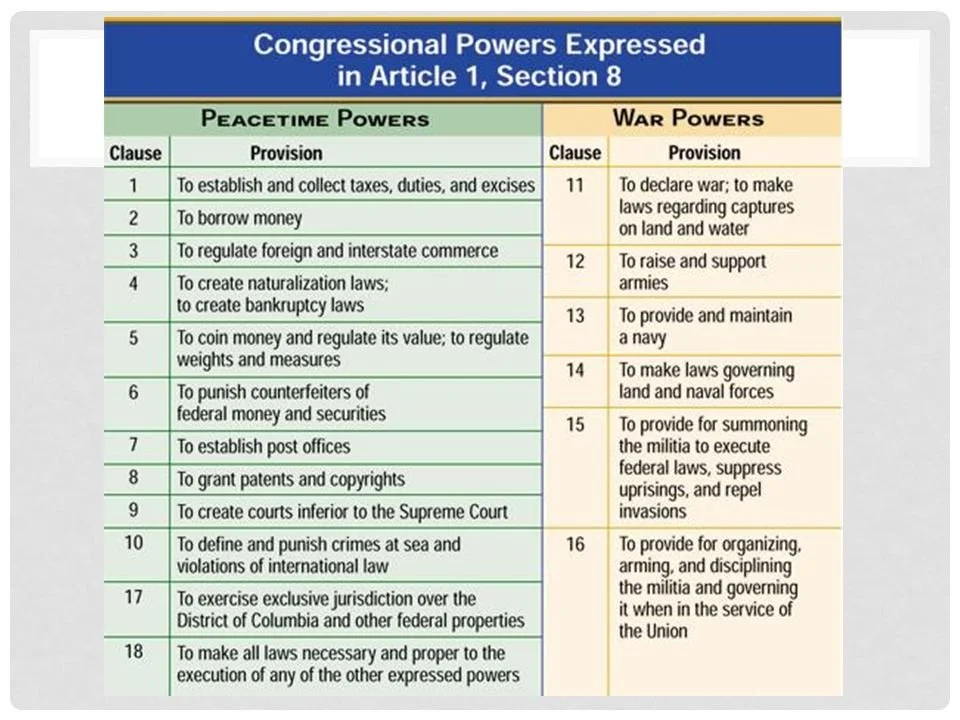FEDERALIST NO. 43
The Same Subject Continued: The Powers Conferred by the Constitution Further Considered
For the Independent Journal.
Author: James Madison
To the People of the State of New York:
THE FOURTH class comprises the following miscellaneous powers:1. A power "to promote the progress of science and useful arts, by securing, for a limited time, to authors and inventors, the exclusive right to their respective writings and discoveries. "The utility of this power will scarcely be questioned. The copyright of authors has been solemnly adjudged, in Great Britain, to be a right of common law. The right to useful inventions seems with equal reason to belong to the inventors.
The public good fully coincides in both cases with the claims of individuals. The States cannot separately make effectual provisions for either of the cases, and most of them have anticipated the decision of this point, by laws passed at the instance of Congress. 2. "To exercise exclusive legislation, in all cases whatsoever, over such district (not exceeding ten miles square) as may, by cession of particular States and the acceptance of Congress, become the seat of the government of the United States; and to exercise like authority over all places purchased by the consent of the legislatures of the States in which the same shall be, for the erection of forts, magazines, arsenals, dockyards, and other needful buildings. "The indispensable necessity of complete authority at the seat of government, carries its own evidence with it. It is a power exercised by every legislature of the Union, I might say of the world, by virtue of its general supremacy. Without it, not only the public authority might be insulted and its proceedings interrupted with impunity; but a dependence of the members of the general government on the State comprehending the seat of the government, for protection in the exercise of their duty, might bring on the national councils an imputation of awe or influence, equally dishonorable to the government and dissatisfactory to the other members of the Confederacy. This consideration has the more weight, as the gradual accumulation of public improvements at the stationary residence of the government would be both too great a public pledge to be left in the hands of a single State, and would create so many obstacles to a removal of the government, as still further to abridge its necessary independence. The extent of this federal district is sufficiently circumscribed to satisfy every jealousy of an opposite nature. And as it is to be appropriated to this use with the consent of the State ceding it; as the State will no doubt provide in the compact for the rights and the consent of the citizens inhabiting it; as the inhabitants will find sufficient inducements of interest to become willing parties to the cession; as they will have had their voice in the election of the government which is to exercise authority over them; as a municipal legislature for local purposes, derived from their own suffrages, will of course be allowed them; and as the authority of the legislature of the State, and of the inhabitants of the ceded part of it, to concur in the cession, will be derived from the whole people of the State in their adoption of the Constitution, every imaginable objection seems to be obviated. The necessity of a like authority over forts, magazines, etc. , established by the general government, is not less evident. The public money expended on such places, and the public property deposited in them, requires that they should be exempt from the authority of the particular State. Nor would it be proper for the places on which the security of the entire Union may depend, to be in any degree dependent on a particular member of it. All objections and scruples are here also obviated, by requiring the concurrence of the States concerned, in every such establishment. 3. "To declare the punishment of treason, but no attainder of treason shall work corruption of blood, or forfeiture, except during the life of the person attained. "As treason may be committed against the United States, the authority of the United States ought to be enabled to punish it. But as new-fangled and artificial treasons have been the great engines by which violent factions, the natural offspring of free government, have usually wreaked their alternate malignity on each other, the convention have, with great judgment, opposed a barrier to this peculiar danger, by inserting a constitutional definition of the crime, fixing the proof necessary for conviction of it, and restraining the Congress, even in punishing it, from extending the consequences of guilt beyond the person of its author. 4. "To admit new States into the Union; but no new State shall be formed or erected within the jurisdiction of any other State; nor any State be formed by the junction of two or more States, or parts of States, without the consent of the legislatures of the States concerned, as well as of the Congress. "In the articles of Confederation, no provision is found on this important subject. Canada was to be admitted of right, on her joining in the measures of the United States; and the other COLONIES, by which were evidently meant the other British colonies, at the discretion of nine States. The eventual establishment of NEW STATES seems to have been overlooked by the compilers of that instrument. We have seen the inconvenience of this omission, and the assumption of power into which Congress have been led by it. With great propriety, therefore, has the new system supplied the defect. The general precaution, that no new States shall be formed, without the concurrence of the federal authority, and that of the States concerned, is consonant to the principles which ought to govern such transactions. The particular precaution against the erection of new States, by the partition of a State without its consent, quiets the jealousy of the larger States; as that of the smaller is quieted by a like precaution, against a junction of States without their consent. 5. "To dispose of and make all needful rules and regulations respecting the territory or other property belonging to the United States, with a proviso, that nothing in the Constitution shall be so construed as to prejudice any claims of the United States, or of any particular State. "This is a power of very great importance, and required by considerations similar to those which show the propriety of the former. The proviso annexed is proper in itself, and was probably rendered absolutely necessary by jealousies and questions concerning the Western territory sufficiently known to the public. 6. "To guarantee to every State in the Union a republican form of government; to protect each of them against invasion; and on application of the legislature, or of the executive (when the legislature cannot be convened), against domestic violence. "In a confederacy founded on republican principles, and composed of republican members, the superintending government ought clearly to possess authority to defend the system against aristocratic or monarchial innovations. The more intimate the nature of such a union may be, the greater interest have the members in the political institutions of each other; and the greater right to insist that the forms of government under which the compact was entered into should be SUBSTANTIALLY maintained. But a right implies a remedy; and where else could the remedy be deposited, than where it is deposited by the Constitution? Governments of dissimilar principles and forms have been found less adapted to a federal coalition of any sort, than those of a kindred nature. "As the confederate republic of Germany," says Montesquieu, "consists of free cities and petty states, subject to different princes, experience shows us that it is more imperfect than that of Holland and Switzerland. " "Greece was undone," he adds, "as soon as the king of Macedon obtained a seat among the Amphictyons. " In the latter case, no doubt, the disproportionate force, as well as the monarchical form, of the new confederate, had its share of influence on the events. It may possibly be asked, what need there could be of such a precaution, and whether it may not become a pretext for alterations in the State governments, without the concurrence of the States themselves. These questions admit of ready answers. If the interposition of the general government should not be needed, the provision for such an event will be a harmless superfluity only in the Constitution. But who can say what experiments may be produced by the caprice of particular States, by the ambition of enterprising leaders, or by the intrigues and influence of foreign powers? To the second question it may be answered, that if the general government should interpose by virtue of this constitutional authority, it will be, of course, bound to pursue the authority. But the authority extends no further than to a GUARANTY of a republican form of government, which supposes a pre-existing government of the form which is to be guaranteed. As long, therefore, as the existing republican forms are continued by the States, they are guaranteed by the federal Constitution. Whenever the States may choose to substitute other republican forms, they have a right to do so, and to claim the federal guaranty for the latter. The only restriction imposed on them is, that they shall not exchange republican for antirepublican Constitutions; a restriction which, it is presumed, will hardly be considered as a grievance.
A protection against invasion is due from every society to the parts composing it. The latitude of the expression here used seems to secure each State, not only against foreign hostility, but against ambitious or vindictive enterprises of its more powerful neighbors. The history, both of ancient and modern confederacies, proves that the weaker members of the union ought not to be insensible to the policy of this article. Protection against domestic violence is added with equal propriety. It has been remarked, that even among the Swiss cantons, which, properly speaking, are not under one government, provision is made for this object; and the history of that league informs us that mutual aid is frequently claimed and afforded; and as well by the most democratic, as the other cantons. A recent and well-known event among ourselves has warned us to be prepared for emergencies of a like nature. At first view, it might seem not to square with the republican theory, to suppose, either that a majority have not the right, or that a minority will have the force, to subvert a government; and consequently, that the federal interposition can never be required, but when it would be improper. But theoretic reasoning, in this as in most other cases, must be qualified by the lessons of practice. Why may not illicit combinations, for purposes of violence, be formed as well by a majority of a State, especially a small State as by a majority of a county, or a district of the same State; and if the authority of the State ought, in the latter case, to protect the local magistracy, ought not the federal authority, in the former, to support the State authority? Besides, there are certain parts of the State constitutions which are so interwoven with the federal Constitution, that a violent blow cannot be given to the one without communicating the wound to the other.
Insurrections in a State will rarely induce a federal interposition, unless the number concerned in them bear some proportion to the friends of government. It will be much better that the violence in such cases should be repressed by the superintending power, than that the majority should be left to maintain their cause by a bloody and obstinate contest. The existence of a right to interpose, will generally prevent the necessity of exerting it. Is it true that force and right are necessarily on the same side in republican governments? May not the minor party possess such a superiority of pecuniary resources, of military talents and experience, or of secret succors from foreign powers, as will render it superior also in an appeal to the sword? May not a more compact and advantageous position turn the scale on the same side, against a superior number so situated as to be less capable of a prompt and collected exertion of its strength? Nothing can be more chimerical than to imagine that in a trial of actual force, victory may be calculated by the rules which prevail in a census of the inhabitants, or which determine the event of an election!
May it not happen, in fine, that the minority of CITIZENS may become a majority of PERSONS, by the accession of alien residents, of a casual concourse of adventurers, or of those whom the constitution of the State has not admitted to the rights of suffrage? I take no notice of an unhappy species of population abounding in some of the States, who, during the calm of regular government, are sunk below the level of men; but who, in the tempestuous scenes of civil violence, may emerge into the human character, and give a superiority of strength to any party with which they may associate themselves. In cases where it may be doubtful on which side justice lies, what better umpires could be desired by two violent factions, flying to arms, and tearing a State to pieces, than the representatives of confederate States, not heated by the local flame? To the impartiality of judges, they would unite the affection of friends. Happy would it be if such a remedy for its infirmities could be enjoyed by all free governments; if a project equally effectual could be established for the universal peace of mankind! Should it be asked, what is to be the redress for an insurrection pervading all the States, and comprising a superiority of the entire force, though not a constitutional right? the answer must be, that such a case, as it would be without the compass of human remedies, so it is fortunately not within the compass of human probability; and that it is a sufficient recommendation of the federal Constitution, that it diminishes the risk of a calamity for which no possible constitution can provide a cure. Among the advantages of a confederate republic enumerated by Montesquieu, an important one is, "that should a popular insurrection happen in one of the States, the others are able to quell it. Should abuses creep into one part, they are reformed by those that remain sound. "7. "To consider all debts contracted, and engagements entered into, before the adoption of this Constitution, as being no less valid against the United States, under this Constitution, than under the Confederation. "This can only be considered as a declaratory proposition; and may have been inserted, among other reasons, for the satisfaction of the foreign creditors of the United States, who cannot be strangers to the pretended doctrine, that a change in the political form of civil society has the magical effect of dissolving its moral obligations. Among the lesser criticisms which have been exercised on the Constitution, it has been remarked that the validity of engagements ought to have been asserted in favor of the United States, as well as against them; and in the spirit which usually characterizes little critics, the omission has been transformed and magnified into a plot against the national rights. The authors of this discovery may be told, what few others need to be informed of, that as engagements are in their nature reciprocal, an assertion of their validity on one side, necessarily involves a validity on the other side; and that as the article is merely declaratory, the establishment of the principle in one case is sufficient for every case. They may be further told, that every constitution must limit its precautions to dangers that are not altogether imaginary; and that no real danger can exist that the government would DARE, with, or even without, this constitutional declaration before it, to remit the debts justly due to the public, on the pretext here condemned. 8. "To provide for amendments to be ratified by three fourths of the States under two exceptions only. "That useful alterations will be suggested by experience, could not but be foreseen. It was requisite, therefore, that a mode for introducing them should be provided. The mode preferred by the convention seems to be stamped with every mark of propriety. It guards equally against that extreme facility, which would render the Constitution too mutable; and that extreme difficulty, which might perpetuate its discovered faults. It, moreover, equally enables the general and the State governments to originate the amendment of errors, as they may be pointed out by the experience on one side, or on the other. The exception in favor of the equality of suffrage in the Senate, was probably meant as a palladium to the residuary sovereignty of the States, implied and secured by that principle of representation in one branch of the legislature; and was probably insisted on by the States particularly attached to that equality. The other exception must have been admitted on the same considerations which produced the privilege defended by it. 9. "The ratification of the conventions of nine States shall be sufficient for the establishment of this Constitution between the States, ratifying the same. "This article speaks for itself.
The express authority of the people alone could give due validity to the Constitution. To have required the unanimous ratification of the thirteen States, would have subjected the essential interests of the whole to the caprice or corruption of a single member. It would have marked a want of foresight in the convention, which our own experience would have rendered inexcusable. Two questions of a very delicate nature present themselves on this occasion: 1. On what principle the Confederation, which stands in the solemn form of a compact among the States, can be superseded without the unanimous consent of the parties to it? 2. What relation is to subsist between the nine or more States ratifying the Constitution, and the remaining few who do not become parties to it? The first question is answered at once by recurring to the absolute necessity of the case; to the great principle of self-preservation; to the transcendent law of nature and of nature's God, which declares that the safety and happiness of society are the objects at which all political institutions aim, and to which all such institutions must be sacrificed. PERHAPS, also, an answer may be found without searching beyond the principles of the compact itself. It has been heretofore noted among the defects of the Confederation, that in many of the States it had received no higher sanction than a mere legislative ratification. The principle of reciprocality seems to require that its obligation on the other States should be reduced to the same standard. A compact between independent sovereigns, founded on ordinary acts of legislative authority, can pretend to no higher validity than a league or treaty between the parties. It is an established doctrine on the subject of treaties, that all the articles are mutually conditions of each other; that a breach of any one article is a breach of the whole treaty; and that a breach, committed by either of the parties, absolves the others, and authorizes them, if they please, to pronounce the compact violated and void. Should it unhappily be necessary to appeal to these delicate truths for a justification for dispensing with the consent of particular States to a dissolution of the federal pact, will not the complaining parties find it a difficult task to answer the MULTIPLIED and IMPORTANT infractions with which they may be confronted? The time has been when it was incumbent on us all to veil the ideas which this paragraph exhibits. The scene is now changed, and with it the part which the same motives dictate. The second question is not less delicate; and the flattering prospect of its being merely hypothetical forbids an overcurious discussion of it. It is one of those cases which must be left to provide for itself. In general, it may be observed, that although no political relation can subsist between the assenting and dissenting States, yet the moral relations will remain uncancelled. The claims of justice, both on one side and on the other, will be in force, and must be fulfilled; the rights of humanity must in all cases be duly and mutually respected; whilst considerations of a common interest, and, above all, the remembrance of the endearing scenes which are past, and the anticipation of a speedy triumph over the obstacles to reunion, will, it is hoped, not urge in vain MODERATION on one side, and PRUDENCE on the other.
PUBLIUS.








